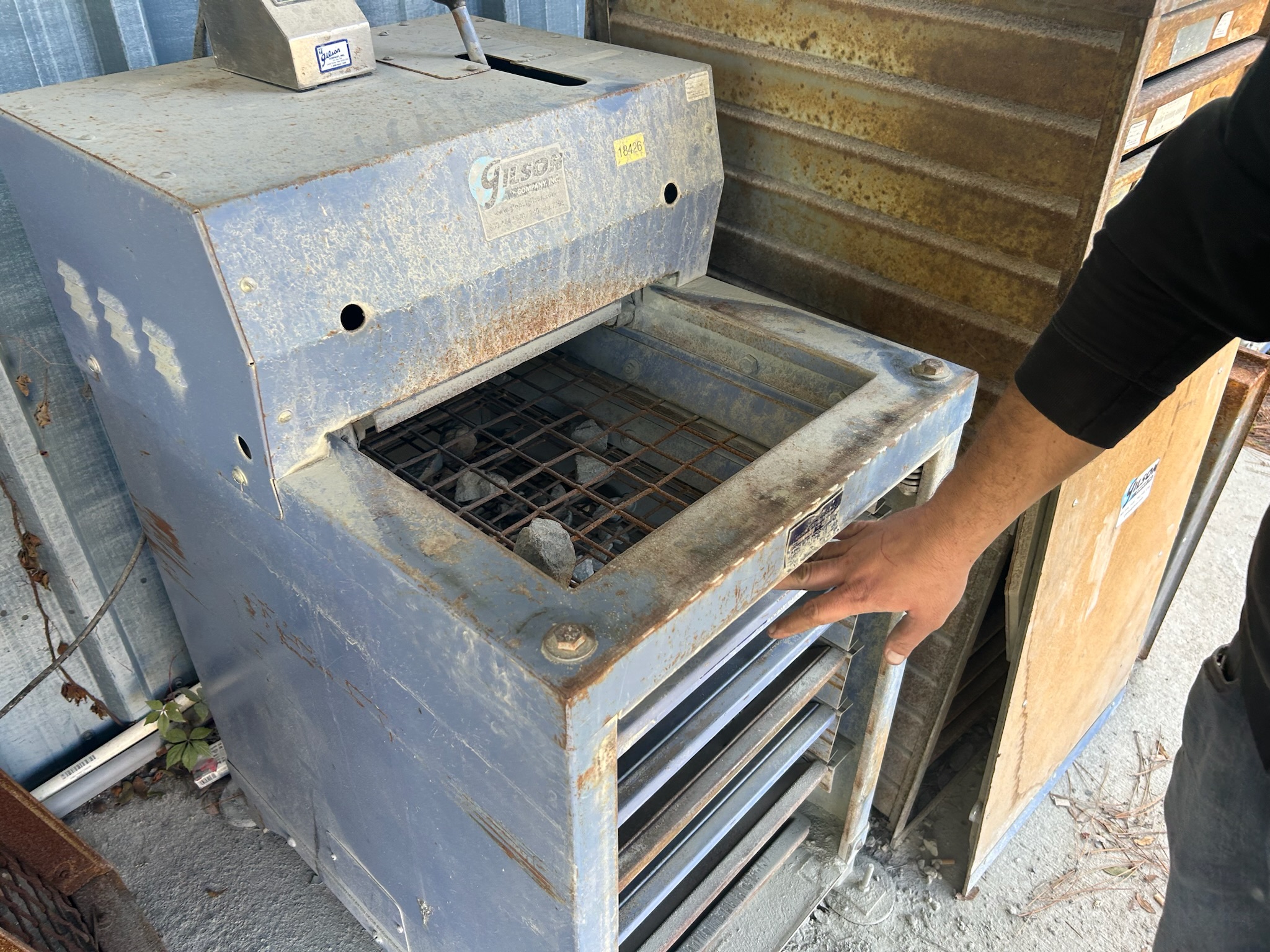Sieve Analysis: How does it ensure structural quality?
February 9th, 2024 | 2 min. read

At Legacy Engineering, we really know our stuff when it comes to construction materials. Sieve analysis, also known as gradation testing, is a big part of what we do. This isn't just about running tests; it's about making sure the materials in your project are top-notch. We're all about thorough testing because we believe that solid, reliable materials are key to a great build. It's our way of making sure your project stands on a foundation of quality from the ground up. With each project, we reaffirm our dedication to quality, supporting our belief that the foundation of every successful construction project lies in the quality of its materials.
Let's explore critical role of sieve analysis and how it underpins the success of every project.
The Importance of Sieve Analysis:
1. Quality Assurance–Sieve testing verifies that construction materials meet specified standards. This process assesses the particle size distribution, ensuring consistency, reliability, and durability in your project outcomes.
2. Compliance with Standards–Adhering to design standards and regulatory requirements is non-negotiable in construction. Sieve testing is key in meeting these specifications, reducing the risk of project delays or additional costs.
3. Optimizing Material Performance–Insight into particle distribution through sieve testing can significantly enhance the structural integrity and longevity of a construction project.
4. Informed Material Selection–Choosing the right material is crucial for the success of any project. Sieve testing aids in classifying materials based on particle size, enabling more informed decision-making.
5. Cost-Efficiency–Early identification of potential material issues can prevent costly rework and wastage of resources, making sieve testing a cost-effective solution.
Our Process at Legacy Engineering
Our approach to sieve analysis involves meticulous testing in our state-of-the-art laboratory. The process starts by collecting a sample from your project site, typically weighing around 10,000 grams, and bringing it back to our facility for detailed analysis.
We utilize a sieve shaker equipped with multiple sieve sleeves to classify the sample by size. This shaking process, lasting ten minutes, ensures an accurate distribution of particles. We then weigh each sleeve post-shaking to determine the gradation of the sample. The final results are compared against project specifications to ensure compliance.
The Benefits of Choosing Legacy Engineering for Sieve Testing
- Rigorous quality assurance for your construction materials.
- Compliance with necessary design and regulatory standards.
- Enhanced material performance and longevity.
- Informed decisions on material selection.
- Overall cost savings and risk mitigation.
Sieve analysis in construction is much more than a routine testing procedure; it's a fundamental investment in ensuring the quality and integrity of your project. This process involves meticulously sifting construction materials to classify their particle sizes and distribution. By conducting a sieve analysis, you're not just meeting industry standards; you're actively contributing to the structural strength and longevity of your project. Accurate sieve analysis results in better material selection, ensuring that the construction materials used are suited for their specific purpose, ultimately leading to a more successful and durable construction project.
Schedule Your Sieve Analysis Today!
Ensure your construction materials meet the highest standards of quality and performance. Contact our scheduling department at scheduling@legacyengineering.com to arrange for sieve analysis for your project. For more insights into our comprehensive material testing capabilities, visit our materials testing blog, complete with photos and videos of our rigorous testing processes.
Sieve analysis with Legacy Engineering – your trusted partner for quality, durability, and compliance in construction.
Topics: